The Tudor Black Bay Fifty-Eight 925 and Its Silver Case
The popular vintage BB58 in an unprecedented 925 silver case.
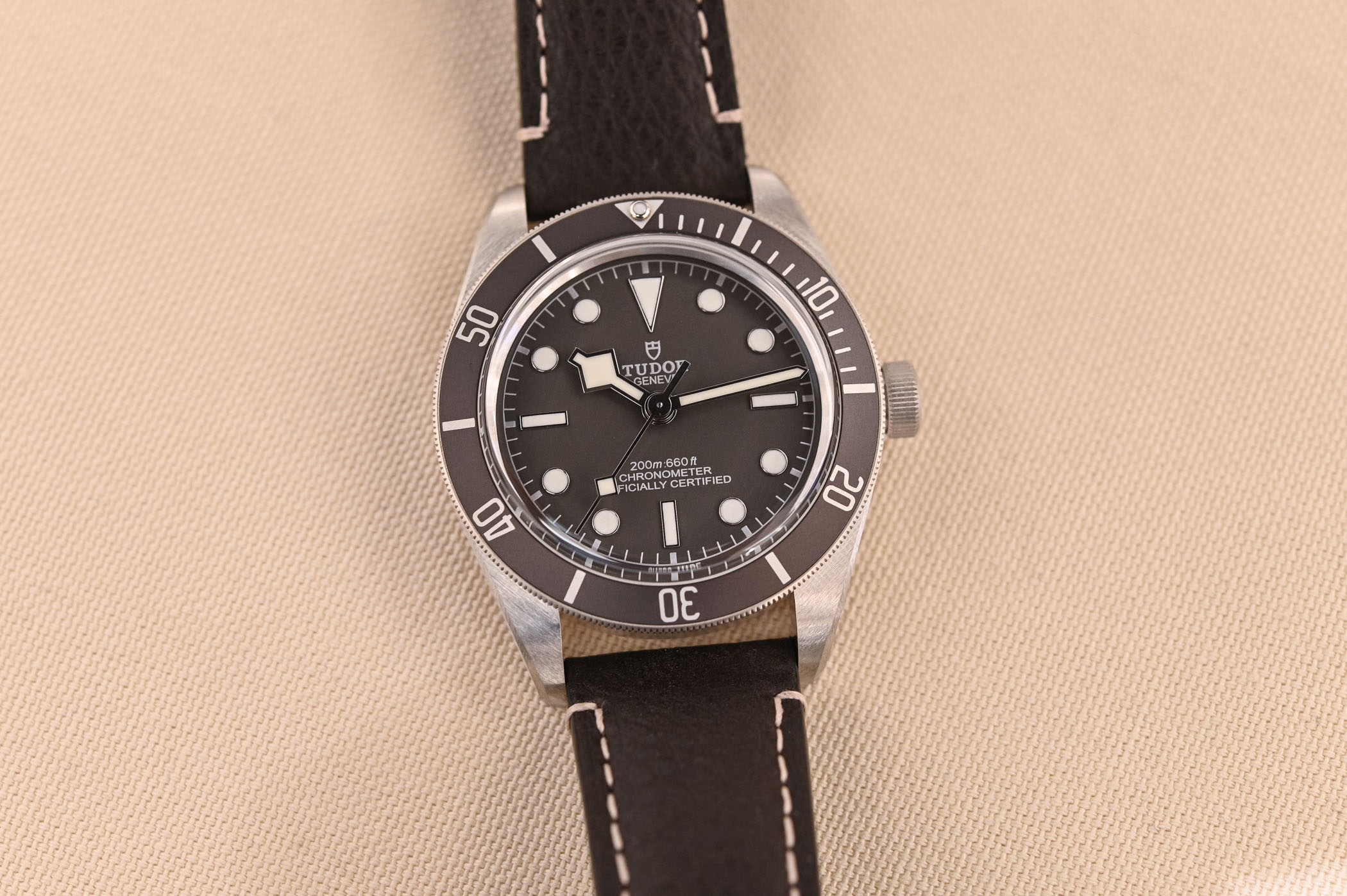
Aside from the classics that are steel, titanium, gold or platinum, watchmaking has been using multiple “innovative” materials. You can think about exotic metals such as tantalum, aluminium or bronze, or materials like ceramic, carbon fibre or even sapphire – and not even counting dozens of proprietary alloys… The story behind 925 silver is slightly different. No stranger to watchmaking, this alloy has, however, long been replaced by steel or gold to make cases, and its use is often relegated to the production of dials. This year, Tudor somehow innovates (“think different” would be more appropriate) by launching its star dive watch in a 925 silver case. And indeed, it looks rather stunning, as we’ll show in this first live encounter with the Tudor Black Bay Fifty-Eight 925.
As said, 925 silver is (was actually) a familiar material in watchmaking. It was common to see pocket watches being made of solid silver, in the same vein as jewellery has been using this alloy to bring a more accessible alternative to gold, yet still precious with its own hallmark. However, 925 sterling silver (which is composed of 92.5% of pure silver, the rest often being copper) has its flaws. It is a relatively soft metal and it is prone to tarnishing – even though some modern alloys can reduce this issue, replacing the main cause of tarnishing, copper, with other metals. This is why, with the advent of wristwatches, it has been replaced by stainless steel or gold alloys to make cases. It is mostly used these days in watchmaking to craft dials, being quite easy to engine-turn.

Tudor has been exploring most classic metals in its collections recently. Stainless steel, of course, or titanium, but also combinations of steel and gold, or bronze. Ceramic has been used in the past with the Fastrider, but this watch isn’t in production anymore. All in all, the brand remains fairly classic when it comes to cases. This year, however, Tudor has decided to go out of its comfort zone by presenting two watches in precious metals. First is the Black Bay Fifty-Eight in solid gold. Second is this, the Tudor Black Bay Fifty-Eight 925, which is far more surprising, with its case made of 925 silver…
Not only the use of 925 silver is a first for a modern Tudor dive watch, but it is also extremely rare in the current watchmaking production. If there’s nothing innovative here, in the sense of something unprecedented, experimental, technically new, it is a rather bold move by Tudor to reintroduce this forgotten metal in a watch.
Behind this new 925 edition, no surprises, as Tudor relies on its praised Black Bay Fifty-Eigh watch. Introduced in 2018, this model is a smaller and even more vintage-oriented take on the BB concept that was released in 2012, a watch instrumental in the resurrection of the brand. As such, we find back here a watch of 39mm, with a typical 1960s diver’s look, with oversized and non-protected crown, chamfered lugs and classic rotating bezel. All the technical specifications, proportions and elements of the dial of this new Tudor Black Bay Fifty-Eight 925 are identical to a stainless steel version. Only the colours and materials are different… and one novelty to see on the back too.
Talking about materials, let’s talk about the case. Because, clearly, this solid silver case will be the centre of attention here. Halfway between stainless steel and solid gold in terms of preciousness, far more subtle than a steel-and-gold version, the choice of silver is surprising but the result is very appealing. According to Tudor, the case is made from a secret alloy, with properties “such that use does not affect the appearance of the case.” In short, Tudor wants to reassure watch enthusiasts here on the issue of tarnishing often associated with silver.
Now that we’ve seen the watch in the metal, some comments regarding its look. First of all, contrary to stainless models that mix satin and polished surfaces, the Black Bay Fifty-Eight 925 is entirely brushed, including the lugs’ chamfers. Second, silver has an entirely different feel than stainless steel. It is more subtle, less technical, warmer, softer, but also carries more brilliance and lustre. It has a rather impressive brightness, which is toned down by the use of brushed surfaces. It definitely feels more precious and has more uniqueness than stainless steel. But that’s when the watch is new.
I’d like to express two reservations regarding this 925 silver case. Despite its sheer beauty, I’m curious to see how the metal will change over time. Will it get patina? Will its colour change? Even though Tudor claims that its alloy is protected against tarnishing, and while I’m pretty sure that the brand has performed hundreds of hours of tests to simulate this evolution, I am still curious to know. But only time will tell. My second reservation, and once again this is an opened question that will only be answered by time and use, is regarding the hardness of the material itself. Again, I’m sure Tudor has found a far better alloy than what’s classically used in jewellery. But as Tudor states, this watch is “midway between the legacy of a robust tool-watch and a precious object.” I’d certainly consider this a desk-diver more than a watch for professional combat swimmers. Which, in all fairness, is how 99% of these watches are used anyway.
In order to complement this handsome case, Tudor also brings an unprecedented colour for the dial and bezel of its Black Bay Fifty-Eight 925. Both are executed in a very subtle grey hue, which is named by the brand “taupe” and that I’d call a faded warm grey. Still contrasted enough to bring the desired legibility, this colour complements the subtle reflections of the case and emphasizes the preciousness of the whole concept. Not to mention that this faded colour has an inherent vintage charm, despite the use of white Super-LumiNova on the Snowflake hands and applied markers. This combination of colours/materials is certainly the main reason behind the beauty of this watch.
Turning the watch over, you’ll discover the other big news here, a sapphire caseback… Not something we often see at Tudor, to the exception of the now-discontinued North Flag (yes, now you’re aware… it’s out of production). Once again, this confirms the more casual and precious vocation of this watch, without affecting the 200m water-resistance of other Black Bay models. You’ll thus have the ability to observe the manufacture Calibre MT5400, the same engine as all other Black Bay Fifty-Eight watch. This automatic movement relies on modern solutions, such as a traversing balance bridge, a variable inertia balance, an anti-magnetic balance spring or a long power reserve of 70 hours. Its precision is certified by the COSC, but Tudor insists on regulating its watches at -2 and +4 seconds’ variation per day, when assembled. The decoration of the movement remains fairly industrial, with sand-blasted bridges and a satin-brushed rotor. I personally could have done without a sapphire caseback.
As for the straps, the casual vocation of this Tudor Black Bay Fifty-Eight 925 is confirmed by the absence of a metal bracelet. Tudor leaves the choice between a brown, almost tone-on-tone grained leather strap or a fabric strap in taupe with a silver band. Both are closed by a 925 silver pin buckle.
Availability & price
The Tudor Black Bay Fifty-Eight 925 is now available from retailers and is launched in the permanent collection. It will be priced at EUR 4,050, CHF 4,100 or USD 4,300, either on leather or fabric strap. More details at www.tudorwatch.com.

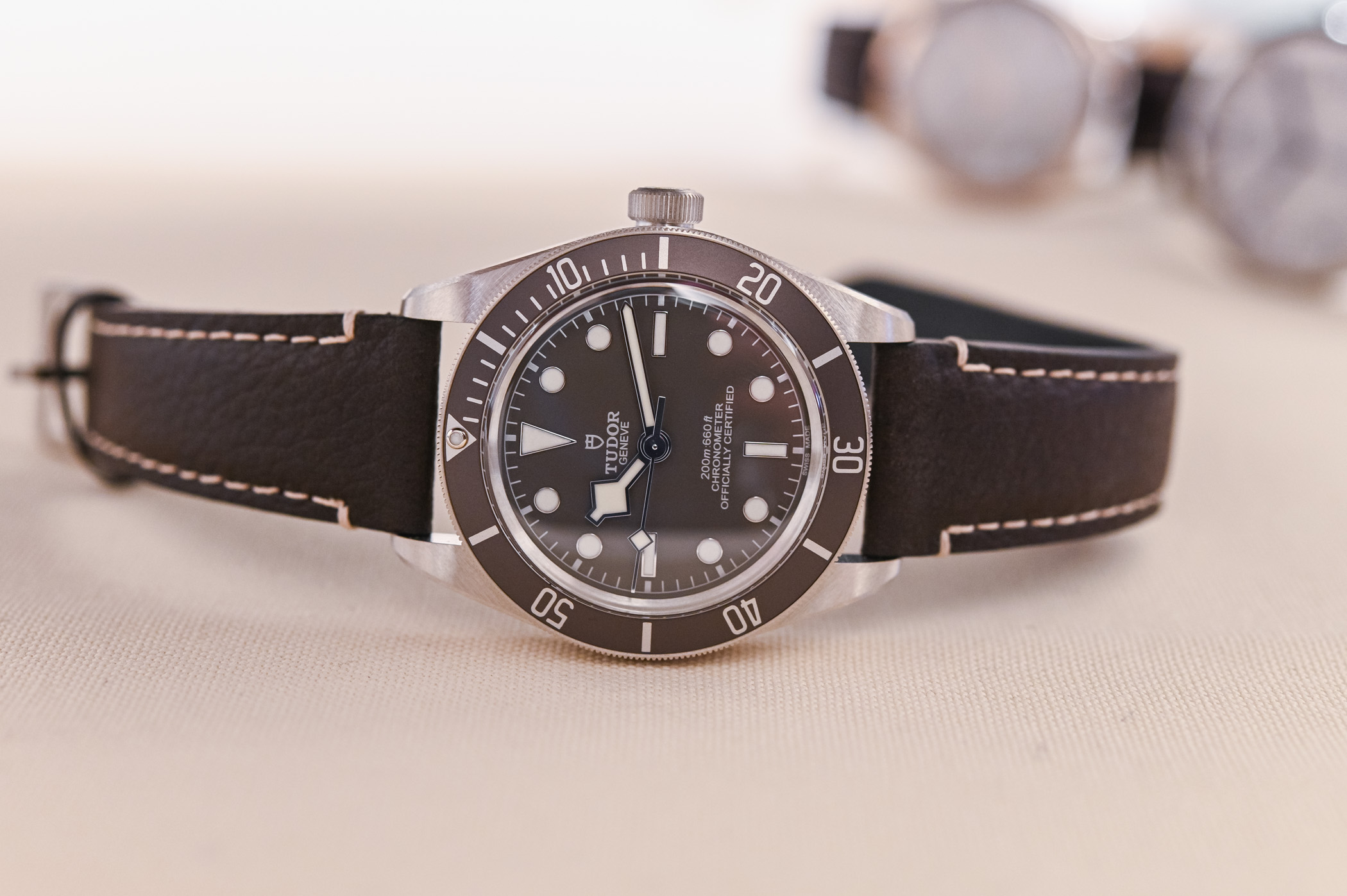


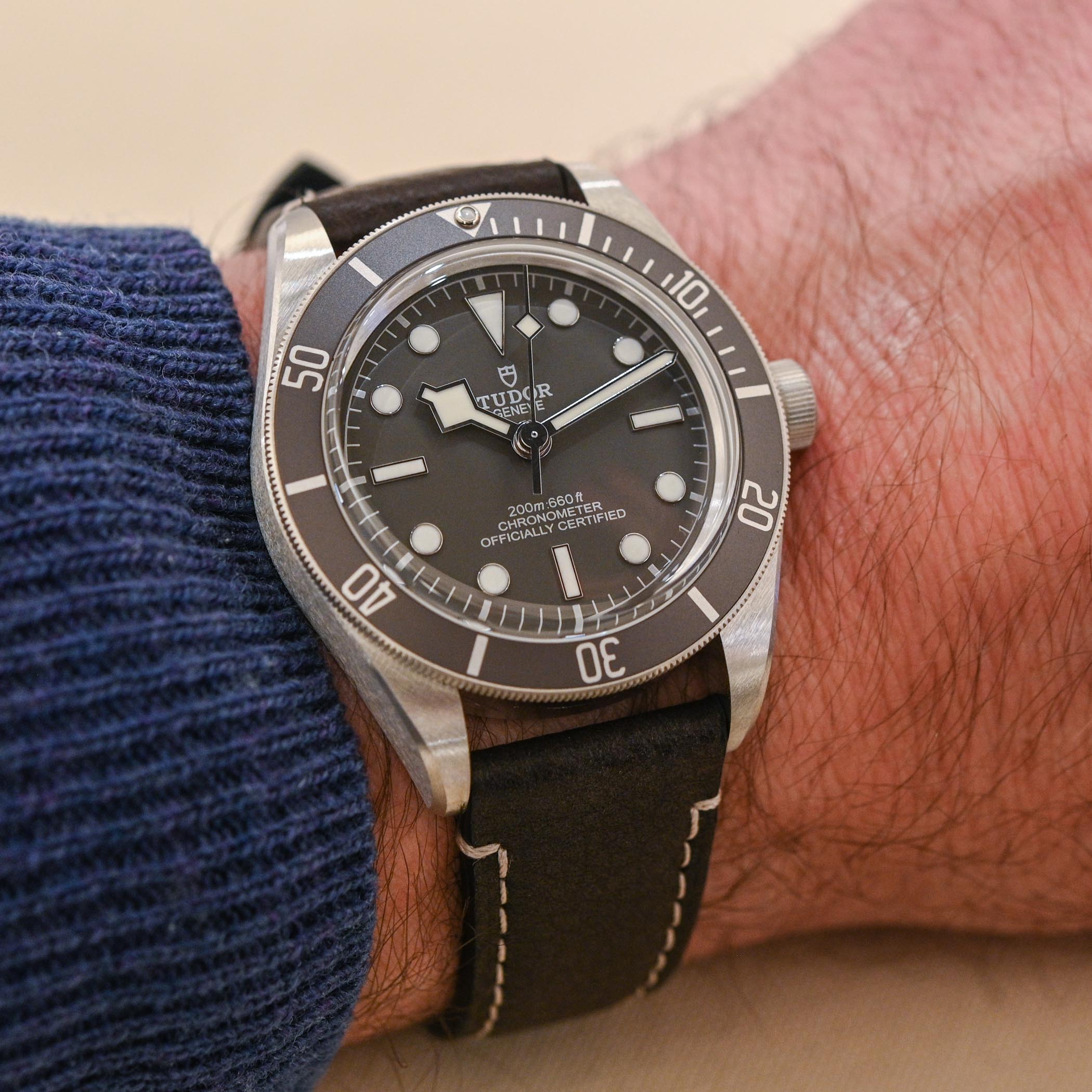
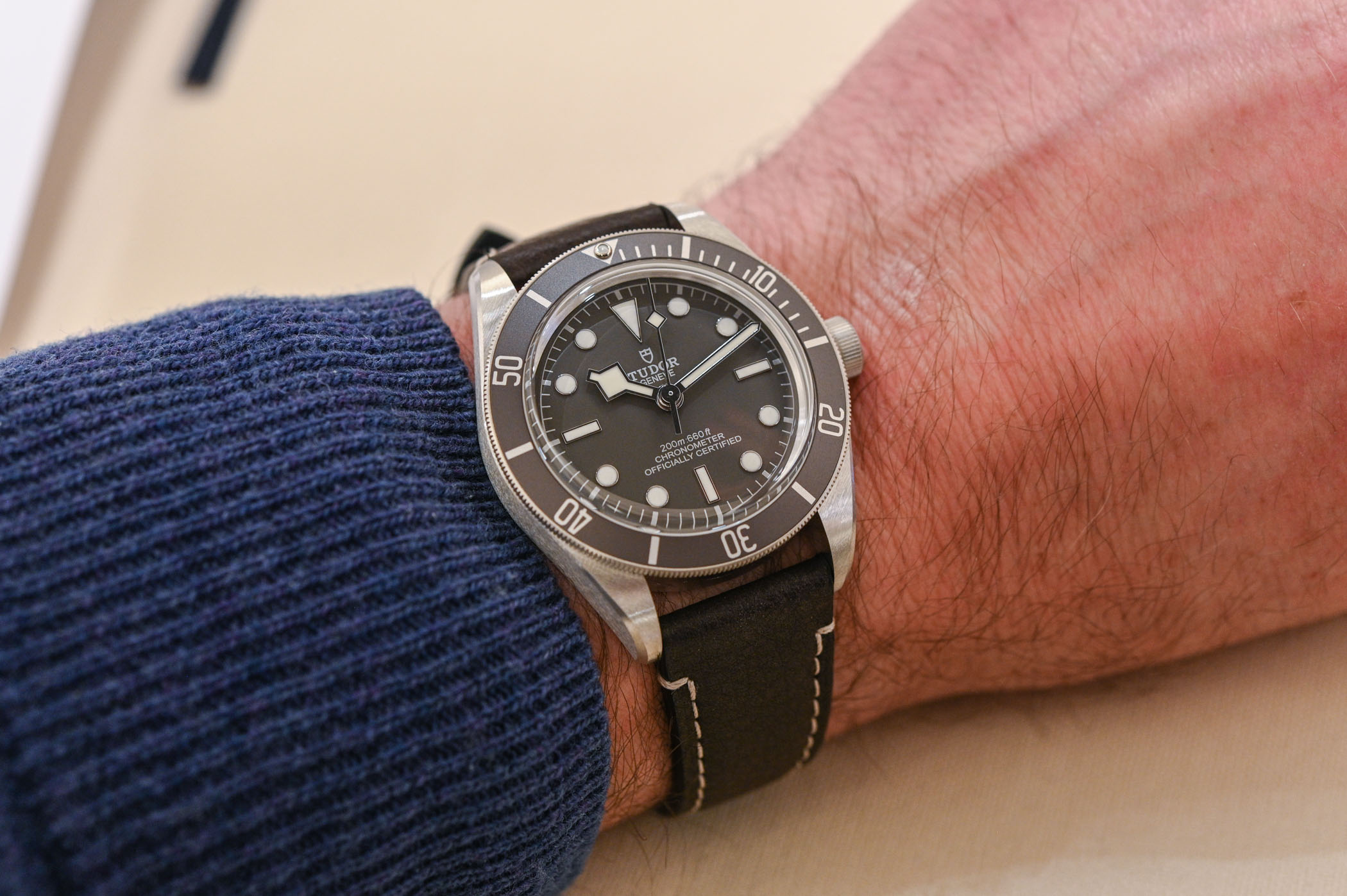
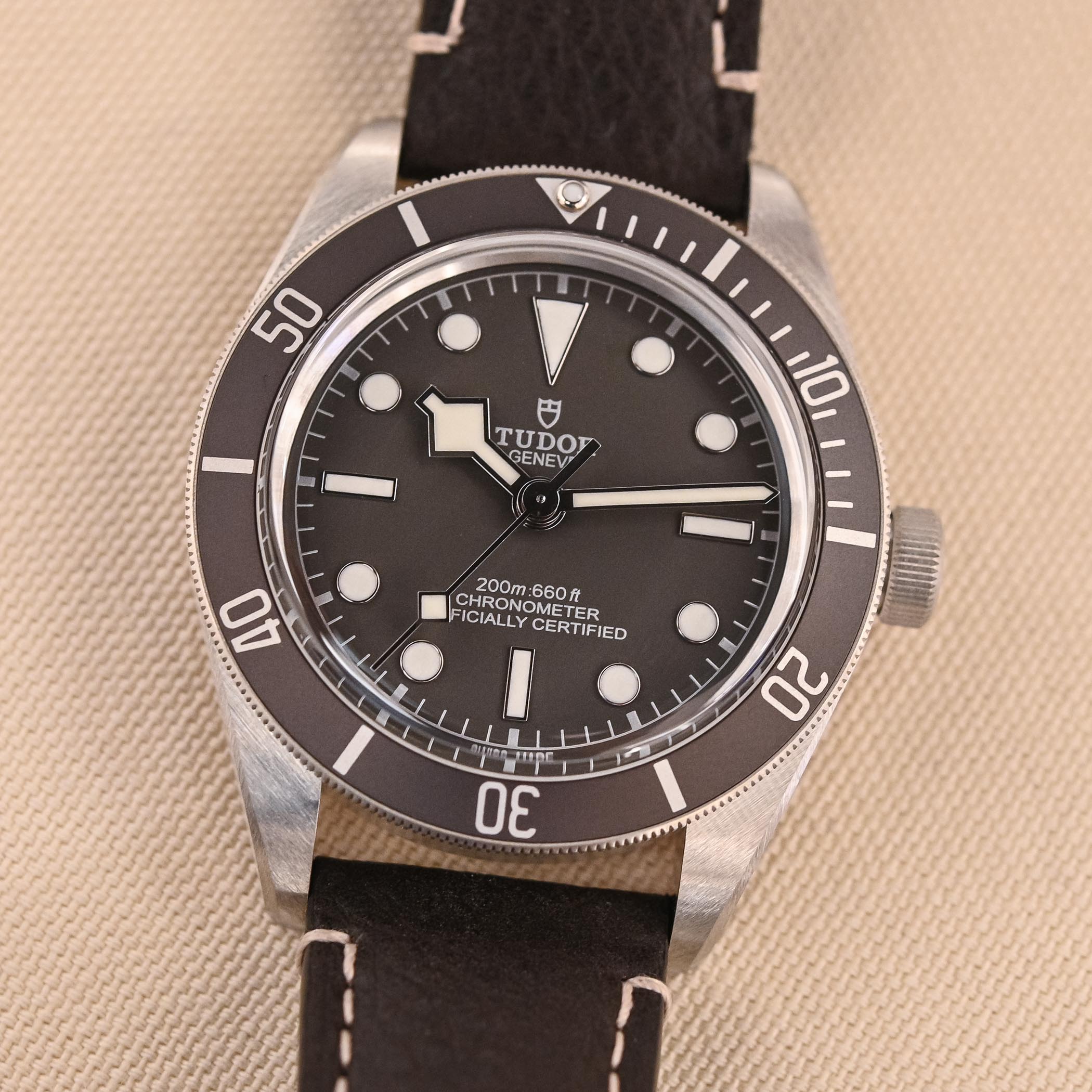
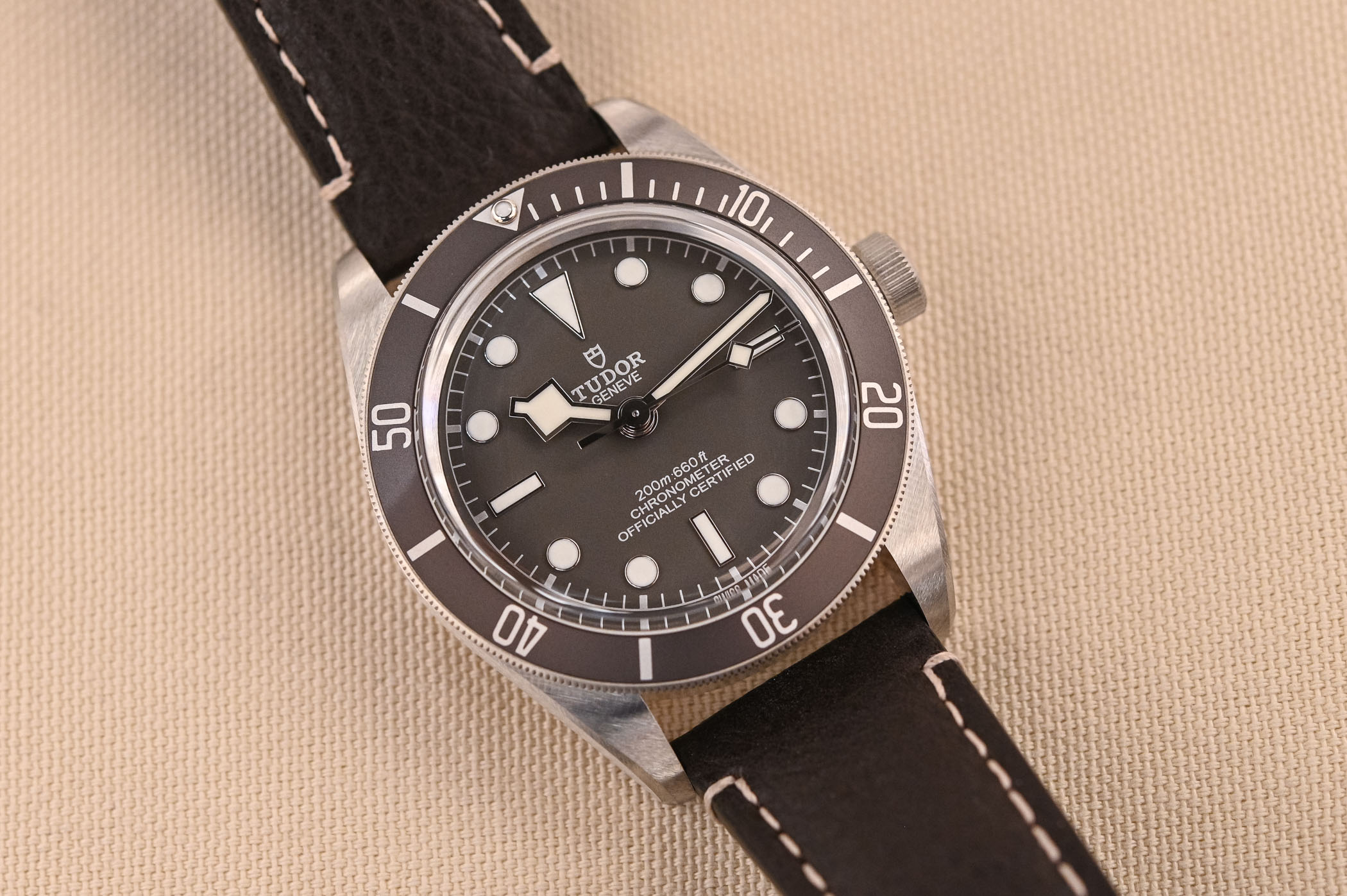
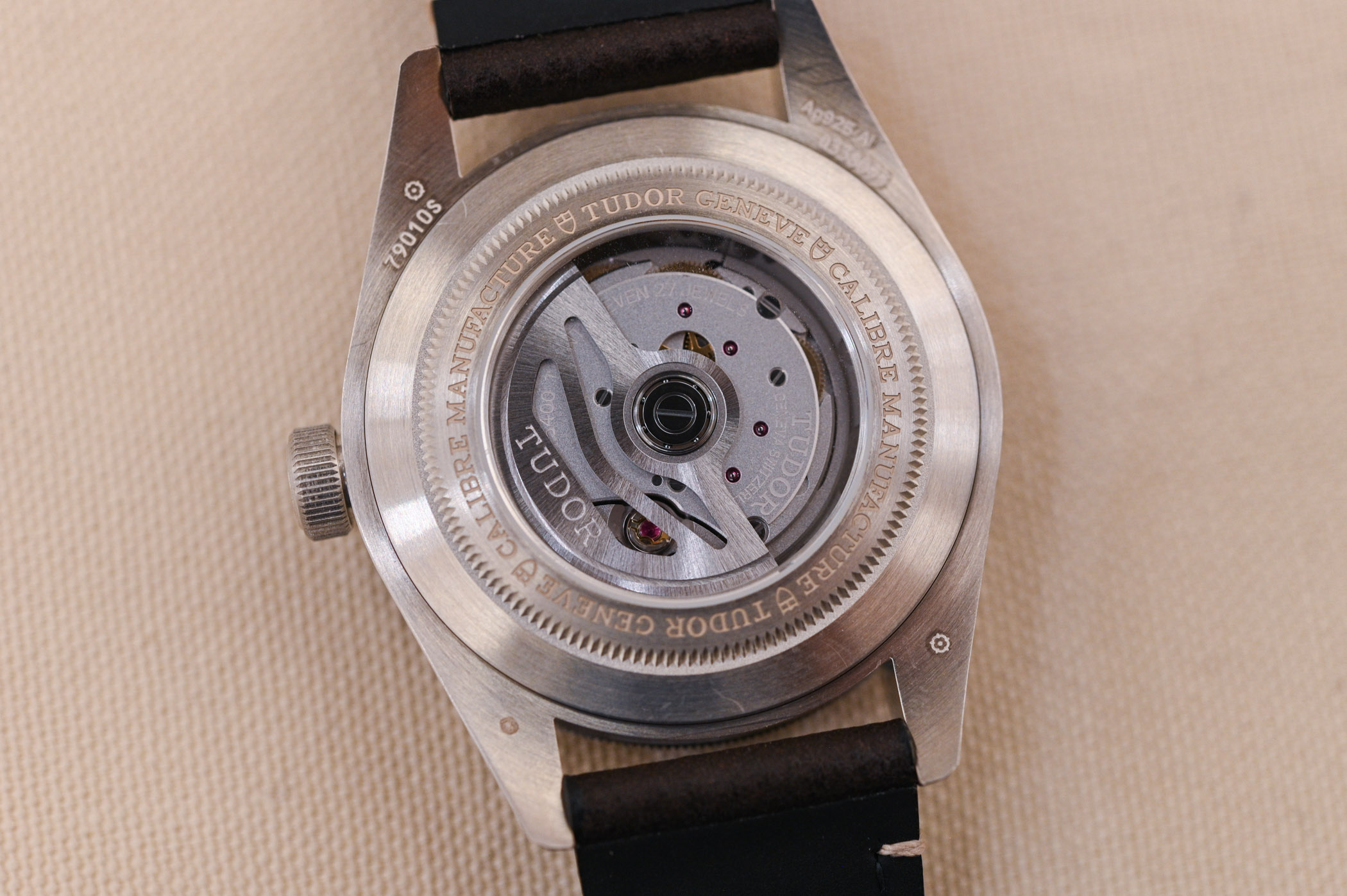
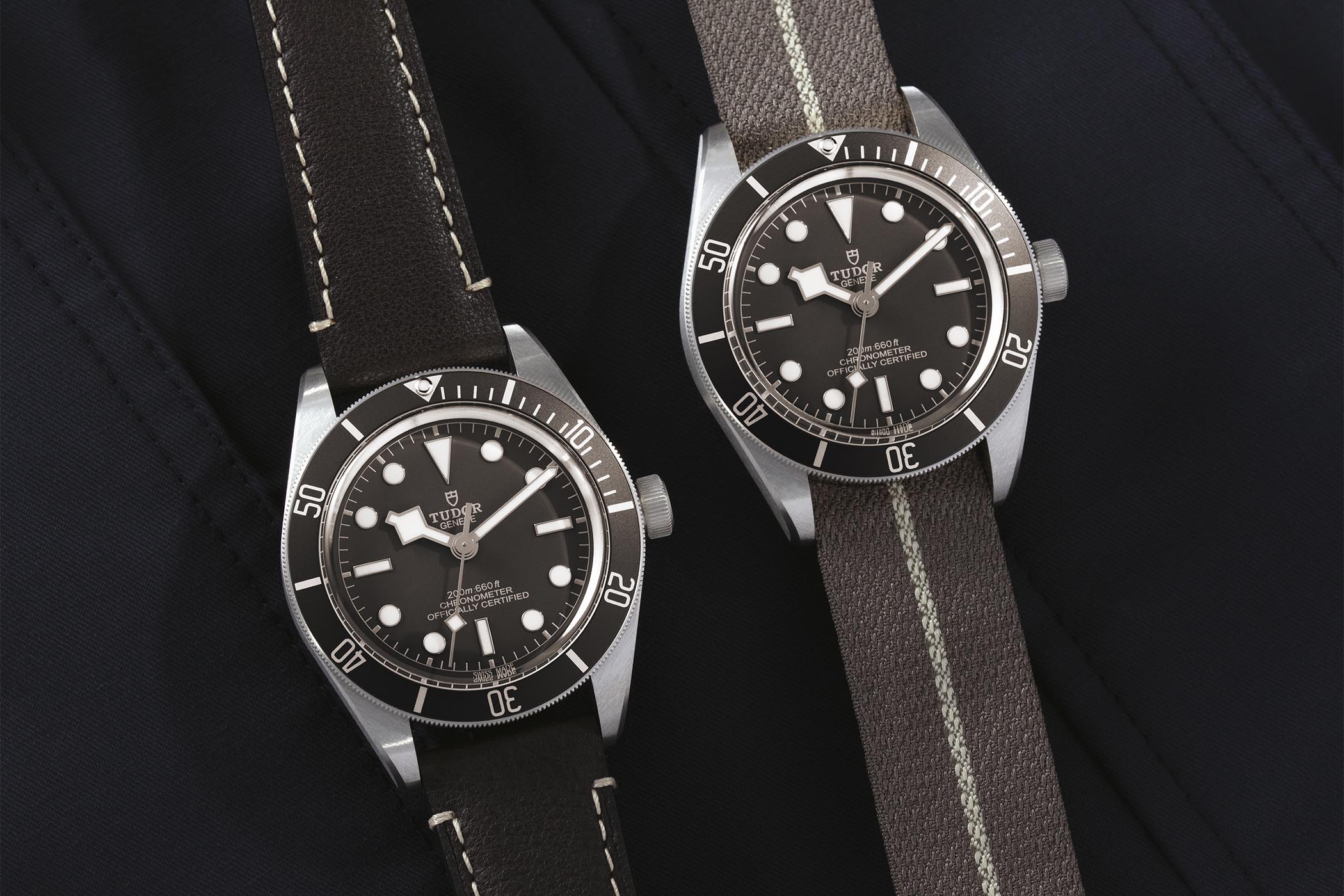



2 responses
Congrats to Monochrome for is article, and especially for the pictures that make the difference between stainless steel and sterling silver perceptible. I am still struggling with the round hour markers vs. the square snowflake hands, but other than that it looks like a compelling timepiece. Luxury dive watch for difficult times, one could say …
@Markus – thanks 🙂